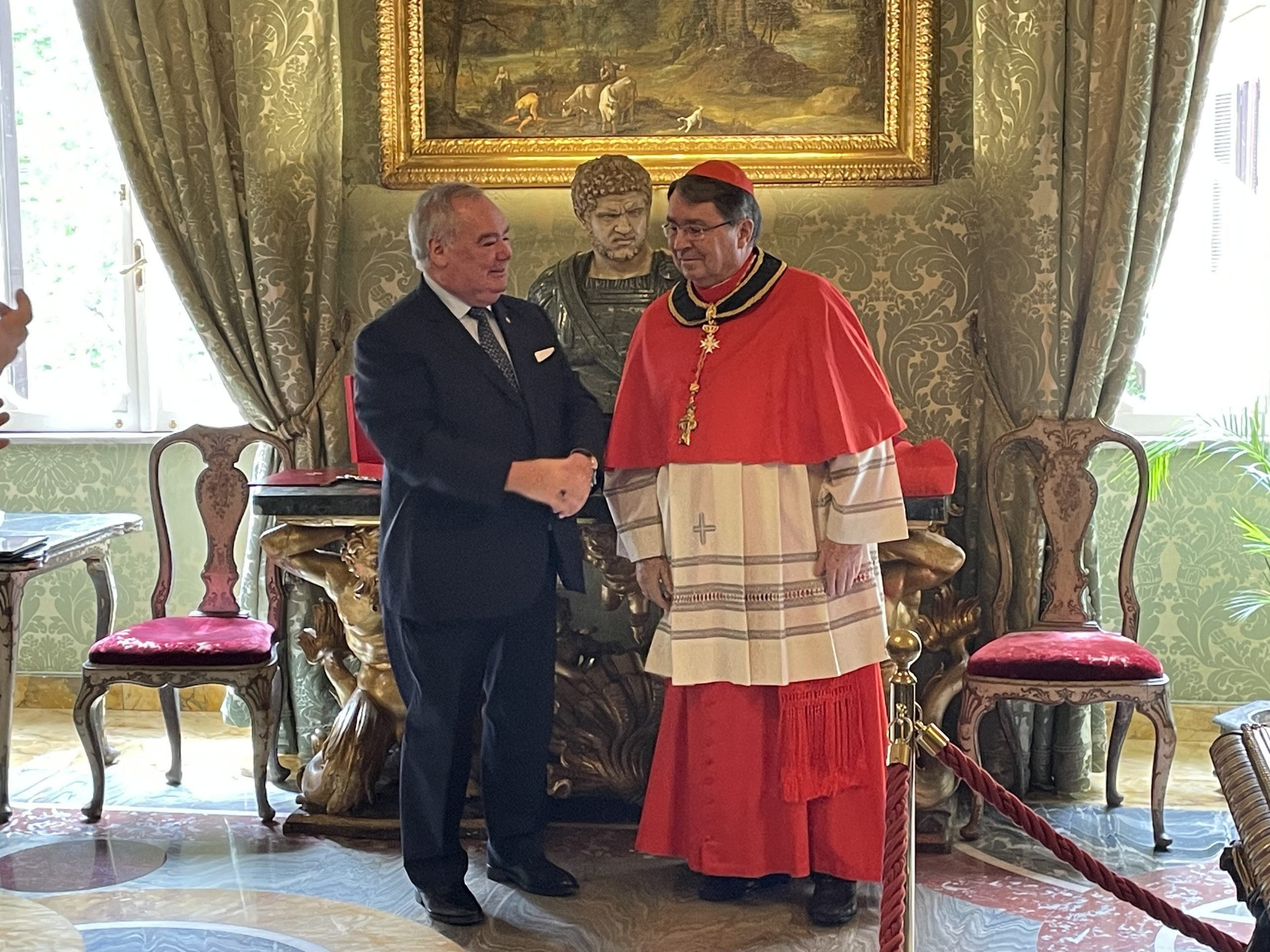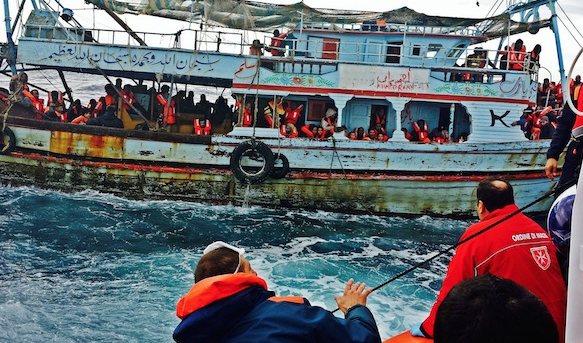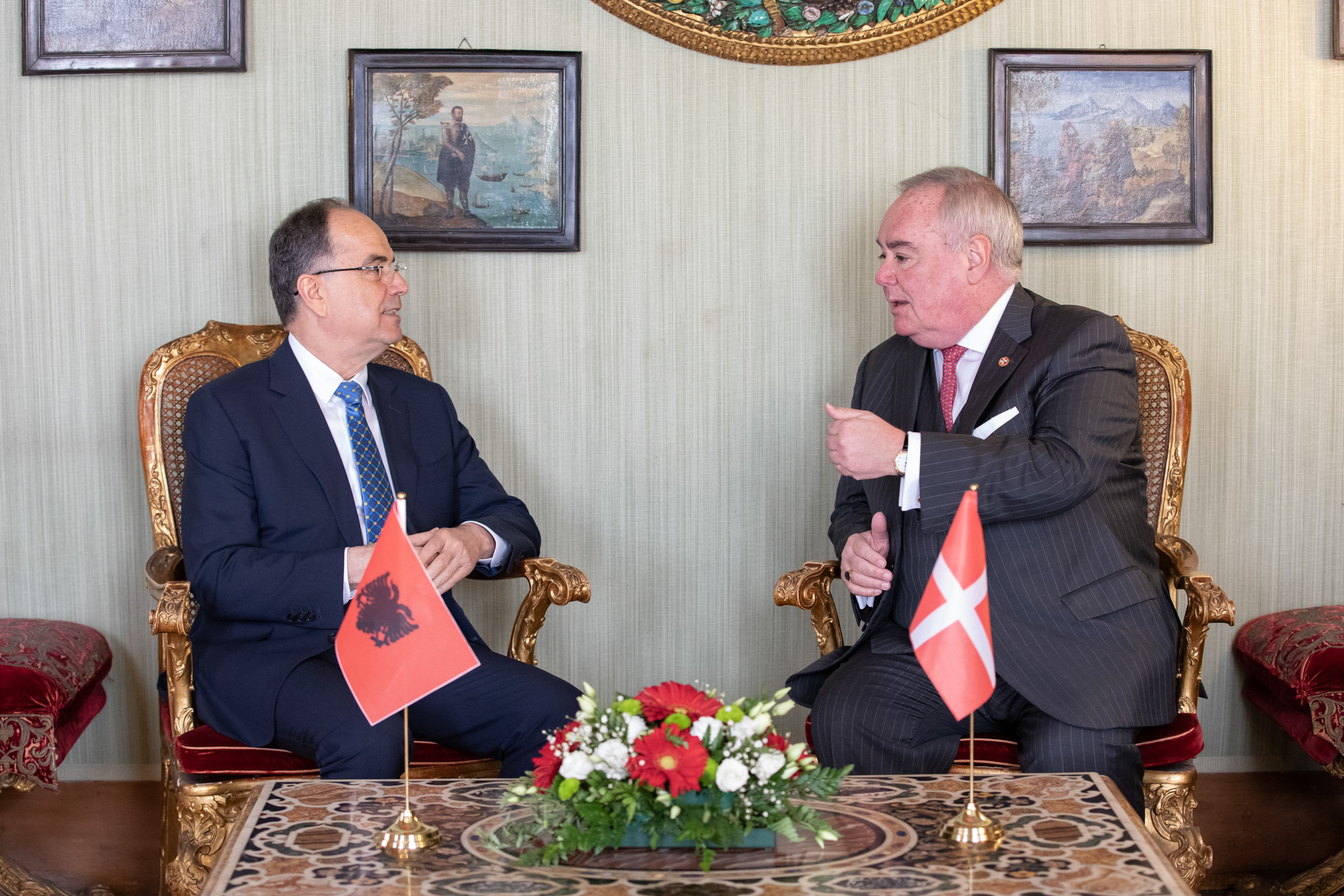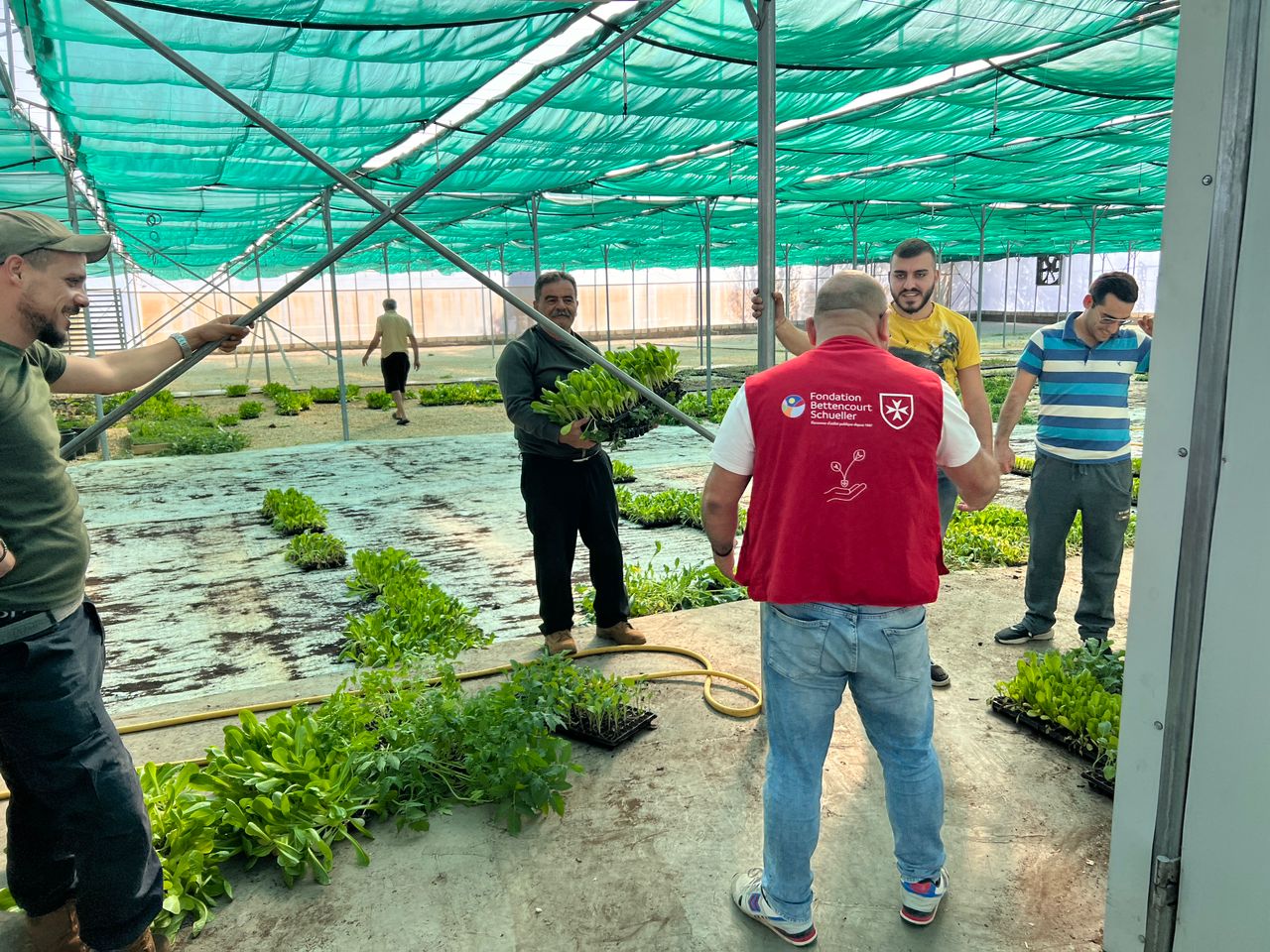A year after the immigrant boat tragedy in Lampedusa on 3rd October 2013 the Director of the Order of Malta’s Italian Relief Corps, Mauro Casinghini, outlined the recent interventions of the relief corps in this area and its future commitment, in light of the end of Mare Nostrum’s operations in which Order of Malta medics participate.
Vatican radio interviews Mauro Casinghini:
Lampedusa, a year since the tragedy. What will happen after Mare Nostrum?
The bodies recovered from the shipwreck of 3 October 2013 lined up in the port of Lampedusa
3 October was a day of mourning on Lampedusa. A year ago 368 people, all migrants, died when their overcrowded boat capsized off the coast of the Sicilian island. Francesca Sabatinelli’s report recalls this tragedy:
The victims were almost all Eritreans, men, women and children fleeing to Europe from war and poverty in the search of safety and a future. The 155 who survived still find it difficult to forget the horror of what happened when a fire, unfortunately started by the same migrants, caused a boat carrying 500 people to capsize. Very soon, the images of an unprecedented tragedy travelled around the world: an infinite line of bodies on the dockside, wrapped in plastic sheets; so many lives cut short. Followed by the tireless work of the rescuers who spent entire days immersed in the sea, seeking survivors and recovering the dead.
This horrific event, which puts Lampedusa’s residents in the front line, prompted Italy to launch a vast search and rescue operation called Mare Nostrum (“Our Sea”) that has saved over 140 thousand people in the last months. Despite this IOM, the International Organization for Migration, claims that three thousand people have died in the Mediterranean this year. In November, Mare Nostrum, of which Italy can no longer bear the cost alone, will be handed over to Tritone (previously called Frontex Plus), a joint operation run by the European agency Frontex. But experts claim it will never achieve the level of Mare Nostrum in managing rescues. The European Union, as all the humanitarian organisations never tire repeating, must “patrol international waters and guarantee a refuge in Europe to people fleeing from their homelands through legal channels, humanitarian corridors and visas”.
Mauro Casinghini, national director of CISOM, the Order of Malta’s Italian Relief Corps was also in Lampedusa on 3 October 2013.Since 2008 the Italian relief corps of the Order of Malta has been engaged in first-aid operations in the Strait of Sicily on board the Italian Finance Police and Coastguards’ vessels:
A. – I remember feeling an infinite anguish. I arrived in the evening with two psychologists from Rome because, alongside the 368 dead, there were over 150 survivors, also being aided by our doctor and nurse already on site. I came down as fast as I could to bring them not only our solidarity but also a real, psychological support. A support which was also given to all those who had participated in this rescue, and first of all the island’s residents, who with their boats had saved many people, and then obviously the Coastguards and Finance Police. We later extended our psychological services to all those involved in the recovery of the bodies at sea, a horrendous task that took many days. After 3 October the psychologists stayed on for six weeks because we wanted to assist all the Lampedusa residents. We set up an actual family-support service that also included the children. I’m thinking of the police forces who had to identify the victims: 368 corpses to photograph, to recompose; no one had ever seen so many dead bodies all together. I was in that hangar, in the airport hangar where all those activities were concentrated. I saw young girls and boys in the flower of their youth who had left with a hope that was drowned not more than a mile from the Lampedusa coast.
Q. – The death of these hundreds of people prompted the “Mare Nostrum” operation. You played a very active role in a mission that is now said to be finished. Italy cannot support it any longer and Europe intends to replace “Mare Nostrum” with “Frontex plus-Tritone”. The organizations working with migrants are very sceptical about what this new operation will really do. What do you think, and what are you specially worried about?
A. – We share this scepticism. “Frontex” is a European border control agency which will now have to carry out Search and Rescue (SAR) operations in the territorial waters of the individual States. The international community has described “Mare Nostrum” as an extraordinary humanitarian mission and the numbers prove this. We’re worried, we’re sceptical, because if a system like “Mare Nostrum” – located at the margins exactly where this type of tragedy, these shipwrecks, happen – is to be wound down then the rescue activities will also be wound down. Therefore, either Italy together with Europe comes up with an equally efficient rescue system, or we will be initially facing many more deaths and many more shipwrecks. Remember that the only intention of the traffickers of death is to make money and this is why we have to see how we can gradually scale down “Mare Nostrum”, how to replace it with other missions, since what counts is the effectiveness of the rescue operation. We, as the Order of Malta’s relief corps, will continue to be present in the Finance Police and Coastguards’ vessels if requested. We shall continue to perform our healthcare services on board and this is certainly something which must be carefully studied if we don’t want to witness other tragedies.
Q. – The most dramatic and important aspect is of course the risks that these people run. But we mustn’t forget that at this point Lampedusa will once again become the scene for the landings which have given this island an almost apocalyptic landscape.
A. – Lampedusa is the initial example of Italian hospitality because the islanders have always been ready to do all they can for these poor people. They have done it in the past and will certainly continue to do so, because it is evident that Lampedusa represents the point of departure for rescues and thus also the point of arrival for migrants. Certainly we must find a model of intervention that also takes into account the needs of Lampedusa as an Italian territory. Lampedusa must no longer be left to cope alone with the great numbers of migrants who are rescued and left on the island. We must accept them,help them, certainly bring them to Lampedusa and then rapidly move them to the areas where they can be organised, hopefully with the mindful intervention of a Europe that can no longer turn a blind eye to this situation.
(English translation of original interview in Italian: http://goo.gl/56qGKx)










